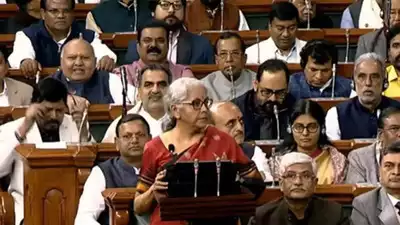An Atmanirbhar Clean Plant Programme will be launched with an outlay of Rs 2,200 crore to boost the availability of disease-free, quality planting material for high-value horticultural crops, Union Minister for Finance Nirmala Sitharaman announced on Wednesday while presenting the Union Budget 2022-23 in Parliament.
In her Budget Speech, Sitharaman stated that an Agriculture Accelerator Fund will be set up to encourage agri-startups by young entrepreneurs in rural areas. The fund will aim at bringing innovative and affordable solutions for challenges faced by farmers, and will also bring in modern technologies to transform agricultural practices, and increase productivity and profitability, she added.
Advertisement
Referring to millets as ‘Shree Anna’, the finance minister quoted Prime Minister Narendra Modi as saying, “India is at the forefront of popularising Millets, whose consumption furthers nutrition, food security and welfare of farmers.”
She noted that India is the largest producer and second largest exporter of ‘Shree Anna’ in the world and that several types of millets such as jowar, ragi, bajra, kuttu, ramdana, kangni, kutki, kodo, cheena, and sama are grown in the country. These have a number of health benefits, and have been an integral part of India’s food for centuries, she said.
Sitharaman acknowledged with pride the huge service done by small farmers in contributing to the health of fellow citizens by growing these crops. To make India a global hub for millets, the Indian Institute of Millet Research, Hyderabad will be supported as the Centre of Excellence for sharing best practices, research and technologies at the international level, she highlighted.
Digital public infrastructure for agriculture will be built as an open source, open standard and interoperable public good, Sitharaman said in her speech. “This will enable inclusive, farmer-centric solutions through relevant information services for crop planning and health, improved access to farm inputs, credit, and insurance, help for crop estimation, market intelligence, and support for the growth of agri-tech industry and start-ups,” she elaborated.
The finance minister said that the agriculture credit target will be increased to Rs. 20 lakh crore with focus on animal husbandry, dairy and fisheries. A new sub-scheme of PM Matsya Sampada Yojana will also be launched with a targeted investment of Rs. 6,000 crore to further enable activities of fishermen, fish vendors, and micro & small enterprises, improve value chain efficiencies and expand the market, she added.
To enhance the productivity of extra-long staple cotton, a cluster-based and value chain approach will be adopted through Public Private Partnerships (PPP), Smt. Sitharaman said. This will mean collaboration between farmers, state and industry for input supplies, extension services, and market linkages, she elucidated.











